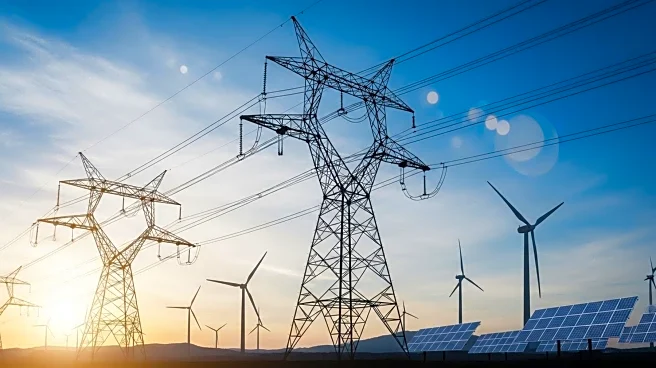What's Happening?
A recent report from European grid operators has clarified the causes behind the massive power outage that affected Spain, Portugal, and parts of France last spring. The blackout, which lasted over ten hours in some areas, was initially blamed on renewable energy sources like solar and wind. Critics, including U.S. energy secretary Chris Wright, suggested that reliance on weather-dependent energy was risky. However, the report found that the outage was due to a voltage surge, not an overreliance on renewables. The surge was triggered by oscillations in power flow, which led to transformers and power plants shutting down. The misinformation surrounding the role of renewable energy in the blackout has influenced public perception, with many believing false narratives about the reliability of solar and wind power.
Why It's Important?
The clarification from European grid operators is significant as it counters misinformation that could hinder the transition to renewable energy. As countries aim to reduce reliance on fossil fuels, understanding the reliability of renewable sources is crucial. The false narrative that renewables are unreliable can impact public support and policy decisions, potentially slowing down efforts to combat climate change. The report emphasizes the importance of grid management and battery storage in ensuring the stability of renewable energy systems. This development highlights the need for accurate information to support the global shift towards cleaner energy solutions.
What's Next?
The expert panel will issue a final report next year, which may provide further insights into the technical aspects of the outage and recommendations for preventing similar incidents. Meanwhile, efforts to counter misinformation about renewable energy will continue, as organizations like the Climate Action Against Disinformation work to educate the public. The findings may influence future energy policies in Europe and beyond, encouraging investment in grid infrastructure and battery storage to enhance the reliability of renewable energy.
Beyond the Headlines
The incident underscores the broader challenge of combating misinformation in the energy sector. As renewable energy becomes more prevalent, it faces scrutiny and opposition from vested interests in fossil fuels. The cultural and political dimensions of energy debates are complex, with misinformation potentially shaping public opinion and policy. This situation highlights the ethical responsibility of media and policymakers to provide accurate information and support informed decision-making.









